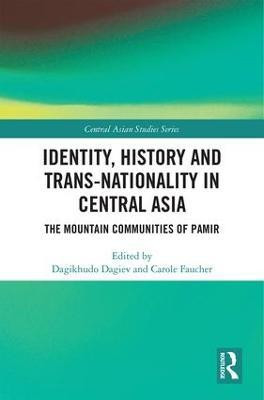Identity, History and Trans-Nationality in Central Asia(English, Hardcover, unknown)
Quick Overview
Product Price Comparison
Pamiris, or Badakhshanis in popular discourse, form a small group of Iranic peoples who inhabit the mountainous region of Pamir-Hindu Kush, being the historical region of Badakhshan. Pamiri communities are located in the territories of four current nation-states: Tajikistan, Afghanistan, China and Pakistan. This book provides insights in the identity process of a group of mountain communities whose vigorous cultures, languages and complex political history have continued to shape a strategic part of the world. Its various chapters capture what being a Pamiri may entail and critically explore the impact of both trans-regionalism and the globalisation processes on activating, engaging and linking the dispersed communities. The book presents a variety of lines of argument pertaining to Pamiri identity and identification processes. Structured in three parts, the book first addresses themes relevant to the region's geography and the recent history of Pamiri communities. The second section critically explores the rich philosophical, religious and cultural Pamiri heritage through the writings of prominent historical figures. The final section addresses issues pertaining to the contemporary diffusion of traditions, peace-building, interconnectivity and what it means to be a Pamiri for the youth of the region. Contributions by experts in their field offer fresh insights into the Ismaili communities in the region while successfully updating the historical and ethnographic legacy of Soviet times with present-day scholarship. As the first collection of scholarly contributions in English entirely focusing on the Pamiri people, this book will be of interest to academics in the fields of the history, anthropology, religious studies, sociology, linguistics, education and geography of Central Asia and/or East Asia as well as of Islam, Islamic thought, minority-majority relations, population movements and the processes of defining and affirming identity among minority groups.


